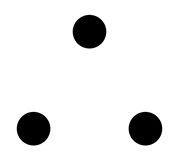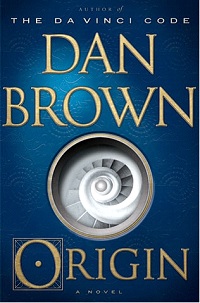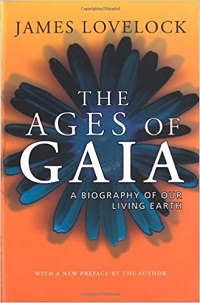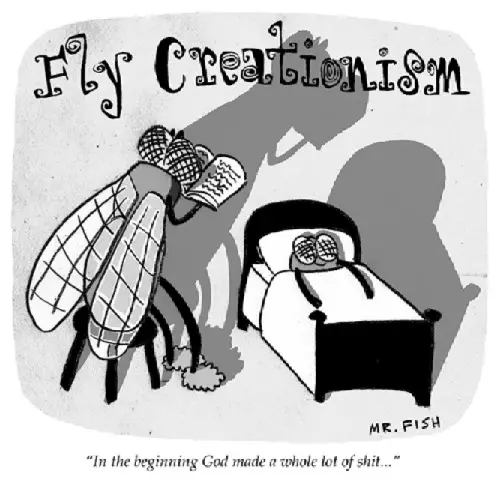|
TRANSLATE THIS ARTICLE
Integral World: Exploring Theories of Everything
An independent forum for a critical discussion of the integral philosophy of Ken Wilber
 David Christopher Lane, Ph.D.
Professor of Philosophy, Mt. San Antonio College Lecturer in Religious Studies, California State University, Long Beach Author of Exposing Cults: When the Skeptical Mind Confronts the Mystical (New York and London: Garland Publishers, 1994) and The Radhasoami Tradition: A Critical History of Guru Succession (New York and London: Garland Publishers, 1992). David Christopher Lane, Ph.D.
Professor of Philosophy, Mt. San Antonio College Lecturer in Religious Studies, California State University, Long Beach Author of Exposing Cults: When the Skeptical Mind Confronts the Mystical (New York and London: Garland Publishers, 1994) and The Radhasoami Tradition: A Critical History of Guru Succession (New York and London: Garland Publishers, 1992).SEE MORE ESSAYS WRITTEN BY DAVID LANE The Creationist ConfusionConflating Patterns with CodesDavid Lane“True knowledge can never be gained by attributing purpose to phenomena.”— James Lovelock “There is no more anger or fear in adrenaline than there is silliness in a bottle of whiskey.”— Daniel Dennett
But whether we opt for holism or reductionism, invoking Eros is superfluous and
contributes nothing to the proceedings.
Carl Sagan, the late professor of Astronomy at Cornell University and the author of such highly readable books as Broca's Brain and A Demon Haunted World deeply understood the difference between a universe that was consciously designed and one that “appeared” to be such. In his novel, Contact, Sagan weaves an intriguing narrative around how a highly advanced intelligence first makes “contact” with human civilization by sending out a series of prime numbers in sequential order. The twist (which, sadly, is not shown in the film version of the book) comes at the very end where it is revealed that the number Pi has embedded within it a source code indicating the cosmos is not the product of chance but of intelligent design. Carl Sagan, ever the skeptic, wanted to show how an agnostic-atheist could potentially change his mind if and when there was extraordinary evidence sufficient to do so. The difficulty is that as human beings we have an inherent tendency towards finding patterns and meanings in things that have neither. This can readily be illustrated by the following picture:

For most of us when we look at those three dots we impute that it is a triangle in front of our eyes. Yet, we are “filling the gaps” between the dots; the object itself is doing none of the heavy psychological profiling. We evolved to make inferences from small data sets and extrapolate to larger contexts in order to survive in our local eco niches because of potentially changing landscapes. The glitch, however, is that we also have a built-in tendency to confuse nature's arrangements (which are without intention) with purposeful architecture. Dan Brown in his latest novel, Origin, has his main character, Professor Robert Langdon succinctly explain the difference between patterns and codes in a philosophical conversation with his female companion and co-detective, Ambra:

“Robert,” she said, “can I ask you a personal question?” Frank Visser has systematically eviscerated Ken Wilber for the past decade on his complete misunderstanding and misapplication of evolution by natural selection. Most recently, Visser has pointed out how Wilber's insistence on Eros as a teleological force in nature is not only wrong-headed with no empirical evidence to support it, but provides no methodological or practical benefit for scientists in their continued attempts to understand how evolution actually works. As Visser writes, “Wilber is clearly jumping to unwarranted conclusions. He goes from "something in Nature is acting weird and needs to be explained" to "there's a drive behind it" to "this drive is universal in nature" and "it is even Spirit-in-action"—for all practical purposes: God. And that based on only one, unspecified , example. In my opinion, Ken Wilber has co-opted notions from complexity science to make them fit into his spiritual agenda of an involution-evolution cosmology—thereby losing the opportunity of really understanding what goes on in self-organizing processes.” The fundamental problem with Wilber's schema, besides being unnecessarily metaphysical, is that he consistently confuses patterns with codes, and because of this conflation doesn't realize how natural selection can over time produce remarkable design without a designer and without intention. As James Lovelock, famous for his Gaia hypothesis, explains, “I wholly agree with Monod that the cornerstone of the scientific method is the postulate that Nature is objective. True knowledge can never by attributing 'purpose' to phenomena.” Lovelock is not a mono-reductionist, but clearly understands that the holism he advocates (the sum is greater than its parts) doesn't preclude reductionism as an important and vital instrument in science. Lovelock explains, “The value of Gaia in this debate is that it is the largest of living systems. It can be analyzed both as a whole system and, in the reductionist manner, as a collection of parts.” But whether we opt for holism or reductionism, invoking Eros or any other mythic being is superfluous and contributes nothing to the proceedings. Wilber is caught in a creationist confusion of his own making. In his spiritual quest to understand the cosmos at large, he is prematurely inserts a theological overdrive without first coming to grips with how life itself could evolve over time due to Monodian chance and necessity. As the Nobel laureate Ilya Prigogine explains (in contrast to Wilber's butchered citations of him): “It is not instability but a succession of instabilities which allow the crossing of the no man's land between life and non-life. We start to disentangle only certain stages. The concept of biological order leads automatically to a more blurred appreciation of the role of chance and necessity to recall the title of the well-known work by Jacques Monod. Fluctuation which allows the system to depart from states near thermodynamic equilibrium represents the stochastic aspect, the part played by chance. Contrariwise, the environmental instability, the fact that the fluctuations will increase, represents necessity. Chance and necessity cooperate instead of opposing one another.” 
While I can sympathize with Wilber and other New Age creationists who see life as a magnificent unfolding of God or Love, it doesn't mean that such sentiments are scientifically evidential. To the contrary, it speaks more about our own meaning seeking and our own psychological need for purpose than anything else. That we evolved to find direction and aim in a universe that appears devoid of any such intentions is precisely why Charles Darwin argued at the very end of his 1859 magnus opus, On the Origin of Species, that “In the distant future I see open fields for far more important researches. Psychology will be based on a new foundation, that of the necessary acquirement of each mental power and capacity by gradation.” In sum, we are code seekers in a world filled with patterns. From nature's unintended arrangements, we have projected grand castles of intentional design built by a knowing king, forgetting that both are constructions of our own mind. Nature is without intention and yet has evolved creatures who impute such wherever they go since it has given them a remarkable tool to survive, particularly in a cosmos where death greets every being, great or small, with open arms and without discrimination.[1]
“The code seekers are evolutionary survivors in a cosmos “We hunger to understand, so we invent myths about how we imagine the world is constructed—and they're, of course, based upon what we know, which is ourselves and other animals. So we make up stories about how the world was hatched from a cosmic egg or created after the mating of cosmic deities or by some fiat of a powerful being.” NOTE[1] Of course, the longstanding caveat is that we still may indeed find a master algorithm that will upset all that we have previously known about how life originated, but that will never happen if we succumb (as Wilber has done) to mythical thinking and mythical beings and abdicate our rational endeavors in our rush to find certainty and solace.  |